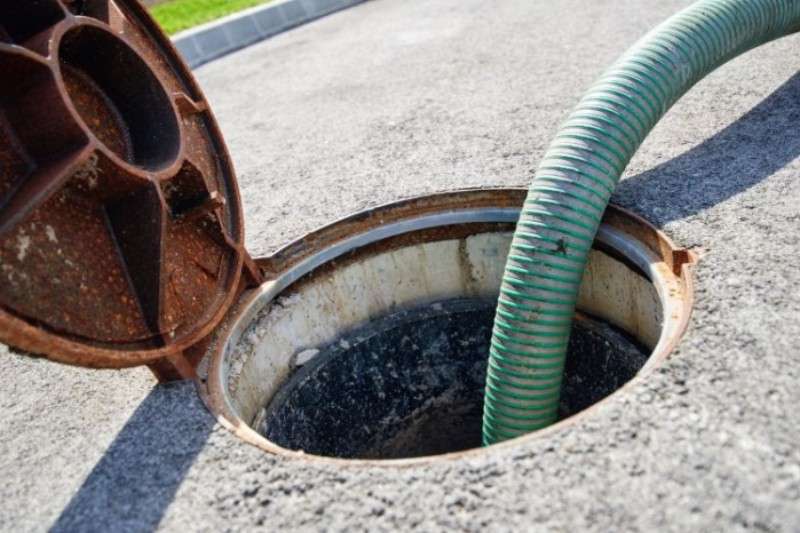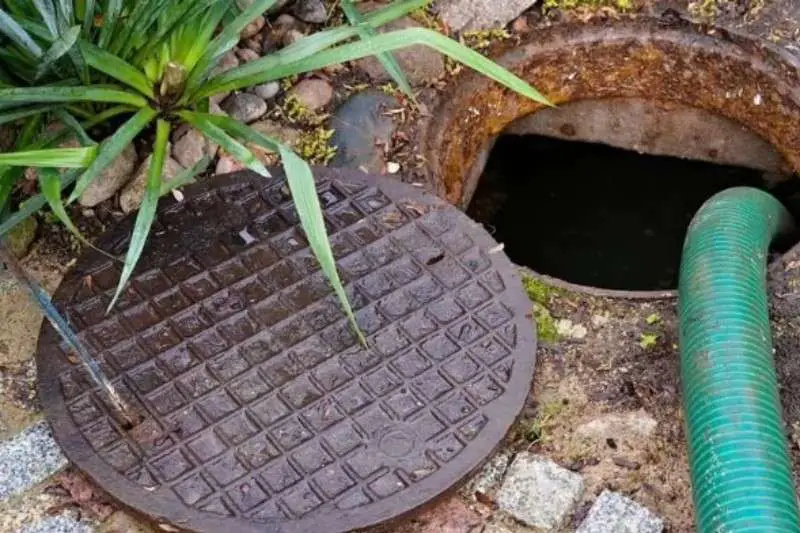Having a functioning septic tank is essential for your home. Not only does it help you with waste management, but it can prevent costly repair expenses down the line. However, many homeowners may not know how often they must pump their septic tanks to ensure they run properly.
In this blog post, we’ll discuss how frequently your septic tank needs to be pumped and what can happen if you don’t keep up with regular maintenance. So whether you’re looking to prolong your existing system’s life or purchase one for the first time, this post has all the information you need.
Importance of regular septic tank pumping
The septic tank is an important part of your home’s plumbing system. As wastewater from sinks, showers, and other plumbing fixtures flows through the pipes, it ends up in a septic tank system where solids are separated from liquids and sent to a leaching field for proper disposal. This process works well as long as you remember to pump your septic tank regularly.
Regular septic tank pumping is essential for maintaining the health and performance of your plumbing system. Failing to pump your tank regularly can lead to backups of boiling water and pipe clogs that require expensive repairs or replacements. In addition, if solids accumulate in the tank, they can escape into the leaching field and damage it, making repairs even more costly.
The frequency you need to have your tank pumped depends on several factors. The tank size, the amount of wastewater your household produces, and any special additives introduced into the system affect when pumping is necessary. Generally, a tank should be pumped every three years if used by an average-sized household. Larger households and those using additives may need to have their tanks pumped more frequently.
Consulting with a professional septic tank technician can help you determine the best pumping schedule for your home. With regular maintenance, you can keep your septic system running smoothly and avoid costly repairs or replacements down the road.
Factors that determine septic tank pumping frequency
Septic tanks must be regularly pumped to maintain efficiency and prevent overflowing or backup. But how often should you pump your septic tank? This depends on several factors, including the size and capacity of your tank, the number of people occupying your household, the volume of wastewater generated, and garbage disposal.
The size and capacity of your tank are the most important factors in determining how often you should pump it. Generally, a 500-gallon tank needs to be pumped every 3-5 years, while a 1,000-gallon tank can go up to 5-7 years. However, if several people live in the same home, you may need to pump more frequently.
The number of people living in your household is also important in determining the pumping frequency. Generally, you should add another year to the recommended interval between pumpings for every person living in the house. So, if you have four people living in your home and a 500-gallon tank, you may need to pump it every 2-3 years.
The volume of wastewater generated is another factor affecting how often you pump your septic tank. If you’re using a lot of water daily or have a garbage disposal installed in the house, it will be necessary to pump excess water from the tank more often.
Finally, the presence of a garbage disposal can also affect how often you should pump your septic tank. Garbage disposals increase the amount of solids in the wastewater, which leads to faster accumulation of sludge and scum in the tank. As such, it is recommended that tanks with garbage disposal be pumped every 1-3 years.
General guidelines for septic tank pumping frequency

It is important to keep your septic tank properly maintained. An integral part of this maintenance includes regularly pumping out the tank to ensure it continues operating effectively. Septic tanks should be pumped at least once every three years, depending on the size and usage of your household waste well.
The pumping frequency depends on various factors affecting the solids’ buildup in your tank. These factors include how many people live in the household, how much water is used, and whether any large amounts of non-biodegradable materials are flushed down the toilet. If you have a lot of visitors to your home, such as for parties or holiday gatherings, this, too, can increase the frequency with which your tank should be pumped.
The frequency of septic tank pumping can also vary based on the size and type of septic system you have installed. Single-compartment tanks require more frequent pumping than double-compartment septic systems, for example. A professional contractor can help you determine an appropriate septic professional schedule.
Consequences of not pumping your septic tank regularly
Failing to pump your septic tank regularly can have several consequences for you and the environment. The first consequence is potential damage to the septic system itself. If left unchecked, waste will build up in the tank until it overflows, leading to costly repairs or even a full system replacement.
A second consequence is the potential risk to public health. If not pumped regularly, contaminants can seep into nearby water sources, leading to contamination and potential exposure to hazardous chemicals. Finally, a neglected septic tank can lead to environmental damage, as untreated wastewater runoff can contaminate local bodies of water.
For these reasons, you must pump your septic tank regularly. Generally speaking, septic tanks should be pumped every 3-5 years, depending on the size of your tank, the number of people in the household, and the amount of wastewater generated. If you are unsure how often to pump your septic tank, consulting with a local professional can help guide and ensure you adhere to local regulations.
Taking care of your septic tank is important to maintaining a healthy home environment and protecting public health. Regularly pumping your septic tank can help prevent costly repairs, protect nearby water sources, and reduce environmental damage. So check out your septic tank regularly and schedule pumping when necessary.
Tips for scheduling septic tank pumping
When maintaining a septic tank, scheduling regular pumping is essential. Generally, tanks should be pumped for 3-5 years, depending on the size of the house and the number of occupants in the household. However, this is only a rough guideline – other factors, such as environmental conditions and types of materials flushed down the drains, can affect how quickly your tank fills and will need to be pumped.
To track when you should schedule pumping, record the exact date you last had your septic tank pumped and note when it needs to happen again in 3-5 years. If it’s been more than five years since the tank was last serviced, trash can consider having it inspected sooner.
Certain signs can indicate that your septic tank may need to be pumped sooner than expected. These include slow or gurgling drains, a very clogged drain or toilet, foul odors from the drain, and water pooling in your yard above the bottom of the tank. If you notice these signs, schedule an inspection and pumping immediately.
Regular septic tank inspections and maintenance

Regularly inspecting and maintaining your septic tank is important in properly functioning your septic system. It helps ensure that your home’s large amounts of wastewater are safely treated and disposed of without damaging the environment or causing health risks. As such, knowing how often you should pump your septic is important.
The frequency of septic inspections and septic pumping depends on several factors, such as the size of your tank and the amount of wastewater produced. On average, it is recommended that household wastewater and tanks be inspected every three to five years and pumped when necessary. In cases where a large volume of water is used, or many people are living in the house, septic tanks may need to be inspected and pumped more often.
Inspections should include checking the levels of sludge and scum levels and sludge in the tank, looking at the condition of the baffles, and ensuring there are no signs of surface water pollution or other problems with your system. This can help you identify issues early on so that they can be addressed before becoming serious problems.
Regular inspections will help you identify other maintenance tasks that may need to be done to keep your septic system functioning properly and prolong its lifespan. These tasks include regularly cleaning the filter, repairing or replacing worn components, and ensuring the ground around your tank is stable and of a suitable grade.
By conducting regular inspections and maintenance of your septic tank, you can ensure it’s functioning properly for many years. It’s important to record all inspections and maintenance tasks performed on your septic system maintenance to know when the next inspection is due.
FAQs:
What are the average costs associated with septic tank pumping?
The cost of pumping a septic tank can vary depending on the size and complexity of your septic system. Generally, you can expect to pay anywhere from $250-$400.
Can I pump my septic tank or hire a professional?
It’s recommended to hire a professional for septic tank pumping and inspections. Professionals have the necessary equipment and experience to properly inspect your septic system healthy and determine the best action.
How can I locate my septic tank for pumping?
Your septic tank should be marked with a riser or lid near your home’s foundation. Contact your local health department for assistance if you can’t locate it.
Septic tanks should be inspected and pumped every three to five years, depending on the tank size and the amount of wastewater produced.
What should I expect during a septic tank pumping service?
During a septic tank pumping service, a professional will inspect your system and pump out any accumulated waste in the tank. The technician will also check for any cracks or holes in the tank and make sure all components function properly.
##How do I know if my septic tank is overfull?
If your septic tank is overfull, you may notice a foul odor coming from the drains in your home. You may also experience slow draining or gurgling sounds from the fixtures and toilets. In some cases, you may also see wastewater surfacing around the exterior of your tank. If you suspect that your tank is full, it’s important to contact a professional right away.
Conclusion
When it comes to maintaining your septic system, the number one key is being proactive. Knowing how often you should pump your septic tank is important to understanding proper maintenance actions. It will help prevent appliance failure and keep your home running smoothly. So if you are unsure when or how often to pump your tank, don’t hesitate to consult a professional in case, there is any misalignment between what was discussed in this blog post and the specifics of your particular setup. By taking these steps to properly care for your septic tank, you can be sure that costly replacements or repairs won’t catch you by surprise.


